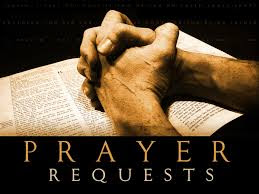Q: I was wondering why we use the term Rabbi when Jesus directly told his disciples not to be called that? Matthew 23:8 But be not ye called Rabbi: for one is your Master, even Christ; and all ye are brethren.
A: Looking at the context of the Matthew 23 passage, we see Yeshua discussing the behavior of the Pharisees with His disciples specifically, but also with “the multitudes.” (v.1) He explained to them, essentially, do as they say, not as they do. That the things they do are being done in order to gain them status in the eyes of men. (v. 5) And it is in this context that He says don’t let others call you Rabbi, Rabbi. (v.8) He also goes on to say don’t call anyone father. And don’t call anyone teacher.
As was His custom, He was commenting on the heart attitude. Clearly, we all have earthly fathers, and not to identify them as such would be a violation of the 4th commandment, to honor one’s father and mother. (Ex. 20:12) Therefore, His statement about not being called Rabbi must be seen in context. At the time of Yeshua, when one was called rabbi, it implied that his followers ascribed to his interpretations of the Torah, and followed them. With that being the case, once Yeshua came to “fulfill the law,” which rabbinically means to interpret correctly, there were no other interpretations that remained valid. Therefore, from the perspective of Torah interpretation, there are no other Rabbis other than Him, and we should not submit to any other interpretation.
What this speaks of is a phenomenon that has become all to popular in today’s world. Today, church-goers and synagogue-goers alike have a tendency to go to a church because they like the pastor, or they like the rabbi. When that person leaves, a vacuum is created, and people follow the leader. It is difficult on the church, but in the end it is devastating for the individual. If we follow Yeshua, and not any human leader, then if a leader is truly following Yeshua, and hearing from Him, and heeding the voice of the Holy Spirit, then when that leader leaves, there won’t be a vacuum. (Assuming the new leader also is abiding in Messiah and hearing from the Spirit, of course.) And this was what Yeshua was speaking about. He has become the final authority on halakha, which is the interpretation and application of the Torah, therefore there is no longer a need to go to man to have the Torah interpreted.
You would have to admit, though, that this doesn’t mean that there aren’t positions in the church, which carry with them certain responsibilities. There is still a pastor, there are still elders, there are still deacons. In the Jewish world, even in the Messianic Jewish world, these positions are delineated as rabbi, zachanim, and shamashim. Clearly, the non-believing Jewish world would not accept Yeshua’s teachings about anything, so I will limit the following statement to the realm of Messianic Judaism. The rabbi (position) of the synagogue still needs to submit to the Rabbi (Yeshua) Who interprets. That is to say, the teachings given by any Messianic rabbi today should be expounding and explaining the interpretations of Yeshua, Who is the Rabbi for all believers.
Additionally, it is my view that a Messianic syngogue is a place where everyone, but especially a Jewish believer in Yeshua can come to worship the God of Abraham, Isaac and Jacob together, in Spirit and in Truth, as one new man. Jewish people would not be comfortable in a church, with a pastor. They go to synagogue which is led by a rabbi. Therefore, in this context, using the title rabbi to refer to the position of congregational leader also has a missiological or evangelistic aspect to it, as well.

